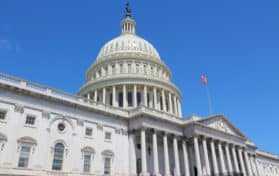
The annual challenge of passing a budget has come round again.
Forestalled by a recent continuing resolution, the deadline jumped to December 3rd. That was a long time in the future, until it became this Friday. Unfortunately, it appears this maybe the easiest decision Congress has to make in its near future, as controversial spending bills pile one on top of the other waiting for votes.
In the past, Senate Minority Leader Mitch McConnell, (R). KY Assuming that, like last time, both parties generally support another continuing resolution to kick the proverbial can down the road to their future selves, the next catastrophe to avert would be defaulting on the national debt. McConnell, said he would not support yet another ceiling hike like the last one he managed to rescue.
Republicans are demanding that a debt ceiling hike be passed through Reconciliation, likely in retaliation for the massive spending package Democrats are trumpeting with President Joe Biden‘s Build Back Better legislation.
Reconciliation is a process by which a simple majority can pass a budget or revenue bill. However, it places strict limitations on what can be contained in or attached to reconciliation legislation. This is likely the cause of Democrats’ reluctance to use a mechanism that would otherwise allow them to circumvent the filibuster.
There are a number of other clauses in the Reconciliation protocols that make it an inherently partisan method of passing legislation. Using Reconciliation would not only limit Democrats’ spending but also allow Republicans to further curtail their efforts by refusing to help constitute a quorum, for example.
As of the moment, both parties seemed determined to play a costly game of legislative chicken with the looming deadline.
Reconciliation can also happen in the House, where it is less restrictive. This is where the spending package currently sits. But its prospects in the Senate do not look good, if posturing by McConnell and Senator Joe Manchin, (D). W-VA
The Treasurer has already stated that she is unsure if she can stretch the government’s functional budget beyond December 15th. At that point, employees would begin to experience furloughs and vital services would be reduced due to lack of available funds.
Yet another thorn in Congress’ side is the National Defense Authorization Act, an annual review of military funding and policy where Republicans want to leverage their opponents into making several significant concessions.
This is what is known as a must-pass bill, something that comes up and must be addressed every year without fail. Congress hasn’t failed in this task since 1961, making this year lucky number 60. Despite taking it up late this year, the Senate is highly motivated to pass the NDAA,. Having just one month to sort out the details, they will have to address issues such as women in the draft and increased defense spending in general, but these details are unlikely to preclude passage of 2021’s NDAA.
Without covering any of the other committee-based drama simmering in the background, congress has its plate full in December. It is currently unclear which side will blink first over Reconciliation and raising the debt ceiling, but it does seem likely that they will at least agree to pass another continuing resolution for the budget. It’s hard to argue over defense spending in cold offices without the lights on, after all.





